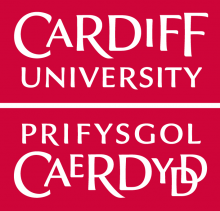Climate change scientists fly more than other researchers, but are also more likely to have taken steps to reduce or offset their flying, a study has revealed.
Drawing on an international survey of more than 1,400 academics, researchers at Cardiff University found that those studying climate change took a total of five flights a year on average – one domestic, two intracontinental and two intercontinental – compared with the four, on average, taken by those not specialising in climate change (two intracontinental and two intercontinental).
That extra air travel was, in some ways, expected for those researching climate change, given the discipline’s global focus and the need to conduct fieldwork, explains the study, which was published in the journal Global Environmental Change.
Climate researchers also report higher levels of awareness of and concern about the impact of aviation on climate change, and as such they were more likely to offset their flights, use alternative modes of travel or avoid travel. For example, 29 per cent of climate researchers chose not to attend a work event because of the carbon footprint of the travel required, compared with 5 per cent of other researchers.
However, the study found that practical factors such as family commitments and the availability of low-carbon options were more important in predicting scientists’ actual flying behaviour than their awareness of climate change issues.
“Those with the most knowledge of all – climate change professors – fly more than any other group,” said Lorraine Whitmarsh, director of the UK Centre for Climate and Social Transformation (Cast), which conducted the survey, adding that the “results strongly suggest knowledge alone is not enough to change workplace travel”.
“The data for our study was collected in 2017 – however, little had changed in academia up until the global pandemic this year,” continued Professor Whitmarsh, who said it was “vital that new ways of working adopted during lockdown are embraced in the long term, not just for universities but for many other organisations and businesses that have tended to have high carbon footprints from travel”.
The large-scale study – the first of its kind to survey climate academics about their travel for conferences, fieldwork and meetings – calls for more university policies to reduce carbon emissions when the current restrictions around Covid-19 are lifted.
“Travel restrictions have required businesses, including universities, to replace a lot of physical travel with virtual interaction, such as online conferencing,” said Professor Whitmarsh, noting that these virtual options “can be just as effective as face-to-face meetings, but at a fraction of the cost, as well as being more accessible for those with caring commitments”.
The findings have been released as the Cast centre launches its sustainability charter, which seeks to recognise that climate change researchers have a responsibility to confront their environmental impact and seek out alternative solutions to climate change and other issues.
It calls on universities to replace physical travel with virtual alternatives and to encourage less flying when physical travel is essential.
It also asks academic conferences to ensure that all catering is vegetarian or vegan, that university offices and conference venues reduce their carbon consumption and that higher education institutions promote the message that low-carbon lifestyles and practices should be central to researchers’ activities.
Kevin Anderson, professor of energy and climate change at the University of Manchester and former director of the Tyndall Centre for Climate Change Research, said the paper made for “uncomfortable” reading.
“This paper must be a catalyst for rapid change,” said Professor Anderson, who added that academia needed “to take a long, hard look in the mirror, reflect on our research and rapidly transition to an academia fit for the 21st century”.
Register to continue
Why register?
- Registration is free and only takes a moment
- Once registered, you can read 3 articles a month
- Sign up for our newsletter
Subscribe
Or subscribe for unlimited access to:
- Unlimited access to news, views, insights & reviews
- Digital editions
- Digital access to THE’s university and college rankings analysis
Already registered or a current subscriber? Login










